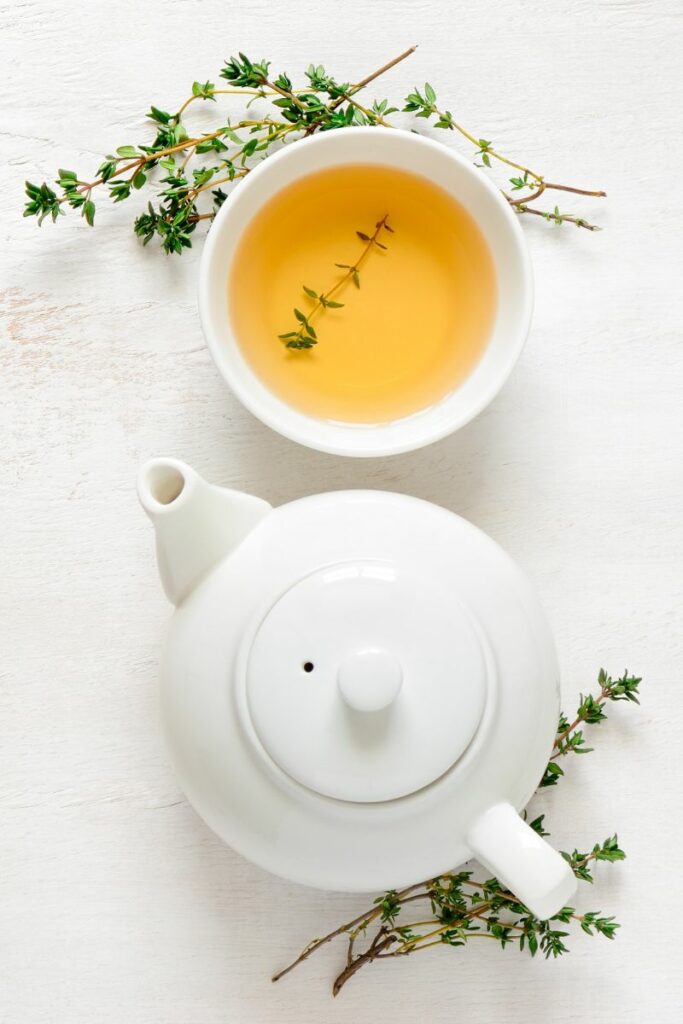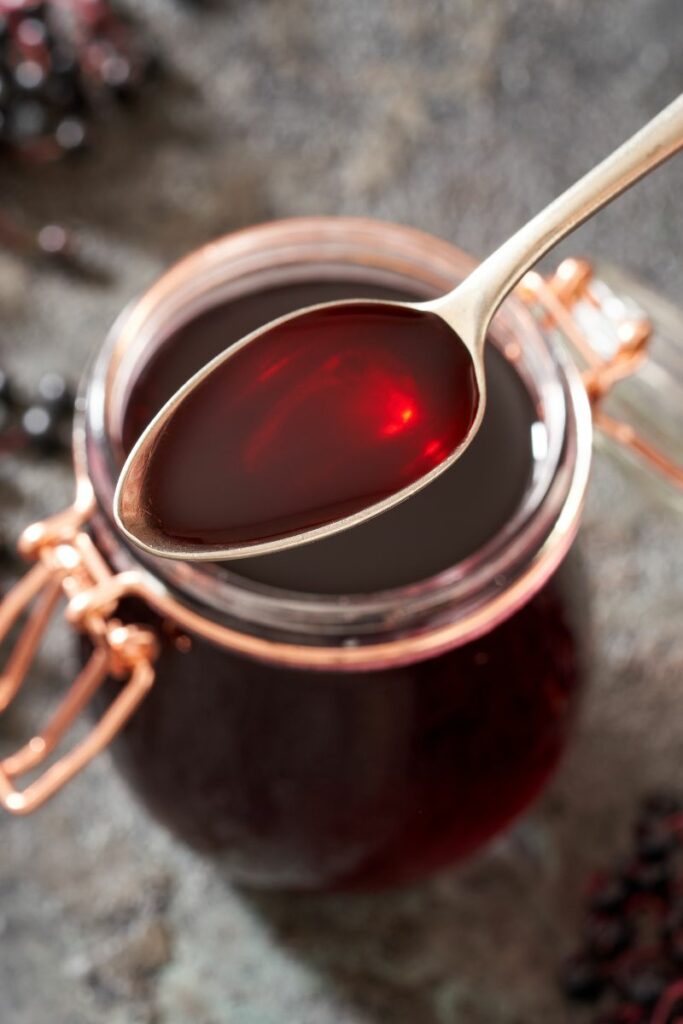7 Gentle Herbs For Children's Cold and Flu Relief
As cold and flu season rolls around, an increasing number of parents are turning away from conventional cough syrups and seeking safer, more natural ways to alleviate their children’s discomfort. They're turning to Gentle Herbs For Children's Cold and Flu Relief.

Herbal remedies are emerging as a popular choice for those looking for effective but gentle options to treat common cold and flu symptoms in kids. These natural treatments are derived from medicinal herbs that have been used for ages to ease symptoms without the harsh effects often associated with standard medicines.
Disclaimer: This is not medical advice. Information and statements shown here are for educational and informational purposes only and are not to replace the advice of your healthcare professional.
This post may include affiliate links. Please refer to our disclaimer for full disclosure.
Why Choose Herbs?
Opting for herbal remedies over conventional medicine can be a thoughtful choice for parents seeking milder, more natural treatment options for their children's colds and flu symptoms. Here are a few reasons why herbs are becoming a go-to choice:
- Gentler on Little Bodies: Unlike many over-the-counter medications that may have strong active ingredients and side effects, herbs tend to be gentler because they come from natural sources. This makes them a softer alternative for children's still-developing bodies.
- Fewer Side Effects: Herbal remedies typically have fewer side effects compared to conventional drugs. This is particularly appealing for parents who are concerned about the potential over-medication of their children.
- Holistic Healing: Herbs often support overall health and wellness, not just treat symptoms. For example, some herbs can boost the immune system along with relieving symptoms, helping your child get better faster and potentially reducing the likelihood of future illnesses.
- Tradition and Trust: Many herbal remedies have been used safely for centuries in various cultures. This long history of use adds a level of trust for parents looking for time-tested solutions.
Important Disclaimer: Before starting any new treatment with herbs, it's crucial to consult with a healthcare provider, especially for children. This ensures that the chosen herbs will not interfere with any existing conditions or medications and are appropriate for your child’s specific health needs.

Top 7 Gentle Herbs For Children's Cold and Flu Relief
When it comes to natural remedies for easing cold and flu symptoms in children, several herbs stand out for their effectiveness and safety. Here’s a closer look at each:
- Echinacea (E. purpurea): Often the first sign of a cold or flu is met with a dose of Echinacea, which is renowned for boosting white blood cells and supporting the immune system. Clinical trials suggest it reduces the duration and severity of symptoms.
- Chamomile Tea: Excellent for soothing scratchy throats, chamomile tea can be used with a teaspoon of honey (for children over one year) to help relieve sore throats and calm a stuffy nose. Its anti-inflammatory properties make it ideal for treating nasal congestion and sinus issues.
- Elderberry Syrup: Rich in vitamin C and other antioxidants, elderberry is effective against viral infections and can significantly shorten the duration of a cold. It’s a tasty syrup that children usually enjoy and works as an effective cough suppressant.
- Ginger Tea: This remedy can be made from fresh roots, steeped in a cup of warm water, to aid digestion and relieve nausea. Add a slice of lemon for an added benefit of vitamin C, which is essential for repairing mucous membranes.
- Licorice Root: Use with caution due to its powerful properties; however, it’s excellent for soothing sore throats and reducing coughs. Licorice can be made into a simple tea, and for older children, mixed with a bit of honey for added throat relief.
- Thyme: Known for its ability to treat respiratory conditions, thyme can be used in a herbal bath to alleviate symptoms of upper respiratory tract infections. A warm bath with thyme leaves can help relieve body aches and congestion.
- Lemon Balm: This herb is used in teas to help reduce fever and alleviate symptoms of colds, such as easing trouble breathing and calming the nervous system.
How to Prepare and Give Children Herbs
Using herbs in the form of teas and syrups is a kid-friendly way to administer natural remedies for cold and flu. Here are some simple recipes and tips on dosage and frequency for children:
- Echinacea Tea
- Recipe: Steep 1 teaspoon of dried Echinacea root or leaves in one cup of boiling water for 10-15 minutes. Strain and let it cool to a suitable temperature.
- Dosage and Frequency: Give about 1-2 teaspoons of the tea three times a day during the course of the cold. Do not use for more than 10 days consecutively.
- Chamomile Tea
- Recipe: Add 1 teaspoon of dried chamomile flowers to a cup of boiling water. Steep for about 10 minutes, strain, and allow to cool.
- Dosage and Frequency: Can be given 2-3 times a day to help soothe a child, promote sleep, and reduce fever. This tea is very mild and generally safe, but keep portions small (a few tablespoons for very young children).
- Elderberry Syrup
- Recipe: Combine 1/2 cup of dried elderberries with 3 cups of water and bring to a boil. Reduce heat and simmer until the liquid reduces by half. Strain the berries and mix the remaining liquid with 1 cup of honey (only for children over 1 year).
- Dosage and Frequency: Give 1 teaspoon of the syrup every few hours for cold or flu symptoms. Do not exceed 3 teaspoons per day for children.
- Ginger Tea
- Recipe: Peel and slice about an inch of fresh ginger root. Boil in 2 cups of water for 10-15 minutes. Strain, cool down, and add honey or lemon for taste if desired.
- Dosage and Frequency: Children can drink 1-2 teaspoons of ginger tea 2-3 times a day. Always serve ginger tea warm but not hot.
- Licorice Root Tea
- Recipe: Steep 1/2 teaspoon of dried licorice root in one cup of boiling water for about 10 minutes. Strain and let it cool.
- Dosage and Frequency: Limit the amount to 1-2 teaspoons of tea once a day due to the stronger effects of licorice root. Consult with a healthcare provider before using licorice root, especially if your child has health issues or takes other medications.
- Lemon Balm Tea
- Recipe: Add 1 teaspoon of dried lemon balm to a cup of boiling water. Steep for about 10 minutes, strain, and let it cool.
- Dosage and Frequency: Give 1-2 teaspoons up to three times a day. Lemon balm is helpful for reducing fever and calming the nervous system during a flu.
- Thyme Bath
- Recipe: Add a handful of dried thyme to a warm bath (you could use a large mesh bag so your drains don't clog). Let your child soak in the bath to help relieve congestion and upper respiratory symptoms.
- Dosage and Frequency: Use once daily during the cold or flu to help alleviate symptoms and promote relaxation.

2 Herbal Remedies for Kids' Cold and Flu
Combining herbs can enhance their individual properties and create a more effective remedy for treating cold and flu symptoms in children. Here are a couple of herbal blends that leverage the synergistic properties of different herbs to provide comprehensive relief:
1. Immune-Boosting Tea Blend
Ingredients:
- Echinacea: Known for its immune-enhancing effects, it helps reduce the duration and severity of cold symptoms.
- Ginger: Adds warming properties that can help break down congestion, soothe sore throats, and calm upset stomachs.
- Lemon Balm: Offers calming effects that can help reduce fever and ease restlessness in sick children.
How to Prepare and Use:
- Recipe:
- 1 teaspoon dried Echinacea
- 1 teaspoon grated fresh ginger
- 1 teaspoon dried lemon balm
- 2 cups of boiling water
- Instructions:
- Combine all herbs in a teapot.
- Pour boiling water over the herbs and steep for 10-15 minutes.
- Strain and cool the tea to a safe temperature.
- You can add a teaspoon of honey for sweetness and extra soothing properties (only for children over 1 year).
- Dosage:
- Give your child 1-2 teaspoons of the tea several times a day during illness.
2. Soothing Respiratory Syrup
Ingredients:
- Elderberry: Excellent for its antiviral properties and can reduce the duration of flu symptoms.
- Marshmallow Root: Soothes irritation in the throat and helps with coughs.
- Thyme: Acts as a natural cough suppressant and helps clear mucus from the airways.
How to Prepare and Use:
- Recipe:
- 1/2 cup dried elderberries
- 2 tablespoons chopped marshmallow root
- 1 tablespoon dried thyme
- 4 cups of water
- 1 cup of honey (only for children over 1 year)
- Instructions:
- Combine elderberries, marshmallow root, and thyme with water in a saucepan.
- Bring to a boil, then reduce heat and simmer until the liquid is reduced by half.
- Strain the mixture, pressing on the herbs to extract all liquids.
- Let the liquid cool to lukewarm, then stir in honey.
- Store the syrup in a clean glass jar in the refrigerator.
- Dosage:
- Administer 1 teaspoon of the syrup to your child every few hours during symptoms.
Tips for Giving Herbal Remedies to Children
- Introduce Slowly: Start with small doses and observe any reactions before continuing.
- Mix with Favorites: To make the remedies more palatable, you can mix syrups or teas with a favorite juice or add honey (if over 1 year old) to sweeten them.
- Keep It Fun: Use fun cups or straws to encourage your child to take their "special tea."
Safety Considerations
When using herbal remedies to treat children's colds and flu, safety should always come first. Here are crucial considerations to keep in mind:
Why It's Crucial to Dose Correctly
When introducing herbal remedies to children, precision in dosing is key. Kids aren't just miniature adults; their bodies process substances differently. Following recommended dosages based on a child's age and weight is essential to avoid toxicity or adverse reactions. Start with smaller doses and closely monitor the response before moving to the full recommended dose.
Selecting Top-Notch, Organic Herbs
Source Carefully: Always opt for high-quality, organic herbs to reduce the risk of exposure to contaminants like pesticides, which can be particularly harmful to children’s developing bodies.
Reputable Suppliers: Purchase your herbs from well-known suppliers committed to safety and quality. This ensures the herbs are not only organic but also harvested and preserved correctly to maintain their healing properties.
Recognizing Herbs That Aren't Kid-Friendly
Herb Safety: Be aware that not all herbs are suitable for children. For example, comfrey and pennyroyal can be toxic. Always check an herb's safety profile before use.
Allergies and Sensitivities: Children, like adults, can have allergic reactions to herbs. If your child has allergies, proceed with caution and consult a healthcare provider beforehand.
The Importance of Professional Guidance
Consult Healthcare Providers: Always talk to a pediatrician or a qualified herbalist before giving any herbal remedies to your child, particularly if they are already on medication or have chronic health issues. They can offer advice tailored to your child's specific health needs.
Monitoring and Adjustments: A healthcare professional can also monitor your child's reaction to the herbal remedy and adjust the dosage as needed. This careful supervision ensures the safest and most effective use of herbal treatments.
Conclusion
As cold and flu season rolls around, many parents are moving away from the usual cough syrups and seeking safer, natural ways to ease their children's discomfort. Herbal remedies offer a wonderful alternative to conventional medicines, providing effective relief with fewer unwanted side effects. From soothing sore throats with licorice root to easing nasal congestion with steam from chamomile tea, these natural treatments harness the gentle power of plants. They are not only used for their immediate benefits but also for boosting the child’s immune system over time.
By choosing high-quality, organic herbs, parents can avoid the harsh chemicals often found in over-the-counter medicines. Herbal remedies such as Echinacea, ginger, and elderberry are celebrated not just for their ability to fight off viral infections but also for their holistic approach to health, enhancing overall well-being while tackling symptoms like runny noses and fever.

However, it's important to remember that not all herbs are suitable for children. Consulting with healthcare providers is crucial to ensure that these herbal treatments are safe and appropriate for your child's specific health needs. This professional guidance is especially important because it helps tailor the dosage and frequency of herbal administration, ensuring treatments like echinacea tea or elderberry syrup are both safe and effective.
I encourage parents to try these gentle herbal solutions during the flu season and see the beneficial effects for themselves. Feel free to share your experiences or ask questions in the comments section below. Whether it's advice on how to make a raspberry leaf tea or questions about the antiviral properties of specific herbs, your contributions help build a community of informed and health-conscious parents.
Your insights into how these remedies have eased your child's cold or flu symptoms, supported their immune function, or simply provided a comforting presence during sickness can be incredibly valuable. Let’s continue this conversation to help each other navigate the challenges of parenting during cold and flu season, sharing tips and experiences that highlight the power of natural medicine. Remember, whether it's adding a teaspoon of honey to sweeten a homemade ginger tea or using saline drops for stuffy noses, the best remedies often come from the heart of our kitchens and the wisdom of traditional herbal medicine.
We're here to support each other in nurturing healthier, happier kids, naturally. What's your go-to herb for cold and flu season? Have any "secret" herbal recipes that have been passed down in your family? Share your stories and let's learn together!



